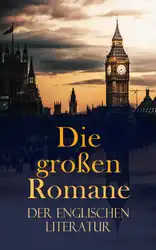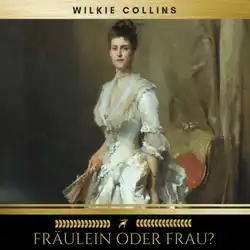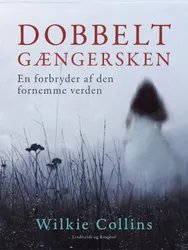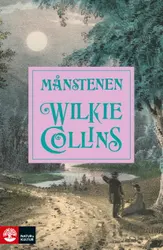Mr. Wilkie Collins has here presented us with a 'novel with a purpose', and yet he has sacrificed none of his freedom and adroit resource of treatment. He has evidently, as he claims in the preface, devoted far more time and care to the study of character than in some former cases; but he is as ingenious as ever in managing his plot, in working one incident into another, and surprising us with developments which nevertheless have been well prepared for. His psychology in this case is closer and more realistic than we remember aforetime; though perhaps a certain section of the medical profession may feel a call to fight hard with him over some points. For he aims at exposing the dehumanizing effects of vivisection, believing with Dr. Haughton that persevered in without very effective checks on the side of ordinary sympathy, it may soon transform a man into a devil. But Mr. Wilkie Collins's great art is seen in tracing the purely psychological lines of the novel, a romance pure and simple, which cannot but affect the most ignorant and stolid. Readers who will not appreciate many of the points so cleverly made against vivisection, will sympathize with Hope Vere and Carmina in their sufferings and their final deliverance; with Miss Minerva, the governess, in her notable triumph over selfish passion; with poor Mr. Gallilee in his awkward position, and his noble decision though taken late; and with 'Zo' in her naive simplicities, and odd likings and dis likings, and her untainted healthy impulse, which enables her unconsciously to act with decision in a critical moment. It would not be fair for us to outline Mr. Wilkie Collins' well-laid plot: suffice it to say that in Mrs. Gallilee, the gradual ossification of the heart and healthy sympathies through excessive de mand for knowledge and the power it is supposed to bring with it, is a most original study—the gradual slipping into crime itself seeming to be but a necessary outcome of the false theory of life she has sought to exhibit in practice. Dr. Benjulia, who isolates himself in his big laboratory, and is keen to wink at bad practice in poor practitioners like Null that he may carry on his own experiments in brain disease, is drawn with decisive pencil; and Mr. Le Frank forms as original a villain as Carmina's old Italian nurse does an attached dependant. Mr. Mool, the lawyer, is one of the weakest characters, but luckily very much does not depend on him. Mr. Collins expresses his thanks to Miss Power Cobbe and some others for aid given to him: he will doubtless furnish them with aid in their noble crusade against scientific cruelty. On the whole, Mr. Collins has secured success in a most difficult experiment; one chief cause of which is that he has dealt with results and general impressions, leaving detail of technicalities behind. The story is strong as a story; and only those who have more or less deeply into the subject will be able to realize the labor Mr. Wilkie Collins has gone through by way of preparation for this work.

200 Meisterwerke der Literaturgeschichte : Die größten Klassiker der Weltliteratur
Franz Kafka, Victor Hugo, Fjodor Michailowitsch Dostojewski, Lord Byron, Giacomo Leopardi, Marcel Proust, Henrik Ibsen, Percy Bysshe Shelley, Charles Dickens, Jane Austen, Mary Shelley, Emily Brontë, Charlotte Brontë, Anne Brontë, William Makepeace Thackeray, Bram Stoker, Henry Fielding, George Eliot, William Shakespeare, D. H. Lawrence, Walt Whitman, Herman Melville, Thomas Wolfe, Virginia Woolf, Joseph Conrad, Sinclair Lewis, Lewis Carrol, Edgar Allan Poe, Edward Bulwer-Lytton, Oscar Wilde, H. G. Wells, Daniel Defoe, James Fenimore Cooper, Lew Wallace, Jonathan Swift, Robert Louis Stevenson, Mark Twain, Walter Scott, Nathaniel Hawthorne, Harriet Beecher Stowe, Laurence Sterne, Frances Hodgson Burnett, Arthur Conan Doyle, Wilkie Collins, Edgar Wallace, Jack London, Henry David Thoreau, John Galsworthy, F. Scott Fitzgerald, Rudyard Kipling, G. K. Chesterton, Washington Irvin, O. Henry, Ambrose Bierce, Alexander Sergejewitsch Puschkin, Michail Lermontow, Iwan Sergejewitsch Turgenew, Leo Tolstoi, Nikolai Gogol, Iwan Gontscharow, Nikolai Leskow, Anton Pawlowitsch Tschechow, Maxim Gorki, François Rabelais, Jean de la Fontaine, Blaise Pascal, Pierre Corneille, Moliere, Jean Baptiste Racine, Charles Perrault, Voltaire, Denis Diderot, Jean Jacques Rousseau, Pierre Ambroise Choderlos de Laclos, Antoine-François Prévost, Marquis de Sade, François René Chateaubriand, Stendhal, Honoré de Balzac, Alexandre Dumas, Alphonse de Lamartine, George Sand, Gustave Flaubert, Emile Zola, Guy de Maupassant, Alphonse Daudet, Jules Verne, Joris-Karl Huysmans, Prosper Mérimée, Charles Baudelaire, Stéphane Mallarmé, Arthur Rimbaud, André Gide, Arthur Schopenhauer, Heinrich Heine, Friedrich Schiller, Johann Wolfgang von Goethe, Jacob Grimm, Gottfried von Straßburg, Wolfram von Eschenbach, E. T. A. Hoffmann, Annette von Droste-Hülshoff, Heinrich von Kleist, Friedrich Hölderlin, Theodor Fontane, Gustav Freytag, Gottfried Keller, Theodor Storm, Stefan Zweig, Joseph von Eichendorff, Klaus Mann, Rainer Maria Rilke, Johanna Spyri, Joseph Roth, Karl May, Robert Musil, Heinrich Mann, Sigmund Freud, Friedrich Nietzsche, Dante Alighieri, Giovanni Boccaccio, Giacomo Casanova, Luigi Pirandello, Giosuè Carducci, Gabriele D'Annunzio, Niccolo Machiavelli, Miguel Cervantes de Saavedra, Pedro Calderón de la Barca, Vicente Blasco Ibañez, Knut Hamsun, Homer, Äsop, Herodot, Thukydides, Xenophon, Platon, Aristoteles, Sophokles, Euripides, Aristophanes, Laotse, Konfuzius, Siddhartha Gautama Buddha, Titus Livius, Tacitus, Marcus Tullius Cicero, Vergil, Ovid, Lukian, Petronius, Apuleius, Longos von Lesbos, Mark Aurel, Aurelius Augustinus
book
Die größten Klassiker der englischen Literatur (Band 1: Romane) : 50+ Titel in einem Buch
Virginia Woolf, D. H. Lawrence, R. L. Stevenson, Jane Austen, Charles Dickens, Emily Brontë, Mary Shelley, Charlotte Brontë, Anne Brontë, William Makepeace Thackeray, Bram Stoker, Henry Fielding, George Eliot, Herman Melville, Thomas Wolfe, Joseph Conrad, Sinclair Lewis, Lewis Carrol, Edgar Allan Poe, Edward Bulwer-Lytton, Oscar Wilde, H. G. Wells, Daniel Defoe, James Fenimore Cooper, Lew Wallace, Jonathan Swift, Mark Twain, Walter Scott, Nathaniel Hawthorne, Harriet Beecher Stowe, Laurence Sterne, Frances Hodgson Burnett, Arthur Conan Doyle, Wilkie Collins, Edgar Wallace, Jack London, John Galsworthy, F. Scott Fitzgerald
book
Die großen Romane der englischen Literatur : 50 Klassiker in einem Band
Charles Dickens, Mary Shelley, Jack London, Arthur Conan Doyle, Jane Austen, Emily Brontë, Charlotte Brontë, Anne Brontë, William Makepeace Thackeray, Bram Stoker, Henry Fielding, George Eliot, D. H. Lawrence, Herman Melville, Thomas Wolfe, Virginia Woolf, Joseph Conrad, Sinclair Lewis, Lewis Carrol, Edgar Allan Poe, Edward Bulwer-Lytton, Oscar Wilde, H. G. Wells, Daniel Defoe, James Fenimore Cooper, Lew Wallace, Jonathan Swift, Robert Louis Stevenson, Mark Twain, Walter Scott, Nathaniel Hawthorne, Harriet Beecher Stowe, Laurence Sterne, Frances Hodgson Burnett, Wilkie Collins, Edgar Wallace, John Galsworthy, F. Scott Fitzgerald
book
100 classic detectives. Golden Age of Detective Fiction. Illustrated : The Gold-Bug, The Adventures of Sherlock Holmes, The Innocence of Father Brown, Crime and Punishment and others
Wilkie Collins, Edgar Allan Poe, Charles Dickens, Arthur Conan Doyle, G. K. Chesterton, Emile Gaboriau, E. W. Hornung, M. McDonnell Bodkin, Guy Boothby, Jacques Futrelle, Melville Davisson Post, Ethel Lina White, Emmuska Orczy, Edgar Wallace, Algernon Blackwood, Maurice Leblanc, Gaston Leroux, Anna Katherine Green, Fergus Hume, Fyodor Dostoevsky, Robert Louis Stevenson, Dorothy L. Sayers, R. Austin Freeman
book
Die Traumfrau
Wilkie Collins
audiobook
Die Frau in Weiß
Wilkie Collins
audiobookbook
Die Frau in weiss
Wilkie Collins
audiobook
Fräulein oder Frau?
Wilkie Collins, Golden Deer Classics
audiobook
Dobbeltgængersken. En forbryder af den fornemme verden
Wilkie Collins
book
Månstenen
Wilkie Collins
book
Die Kasse von Herr Wray : Weihnachtskrimi
Wilkie Collins
book
No Thoroughfare :
Charles Dickens, Wilkie Collins
audiobook
